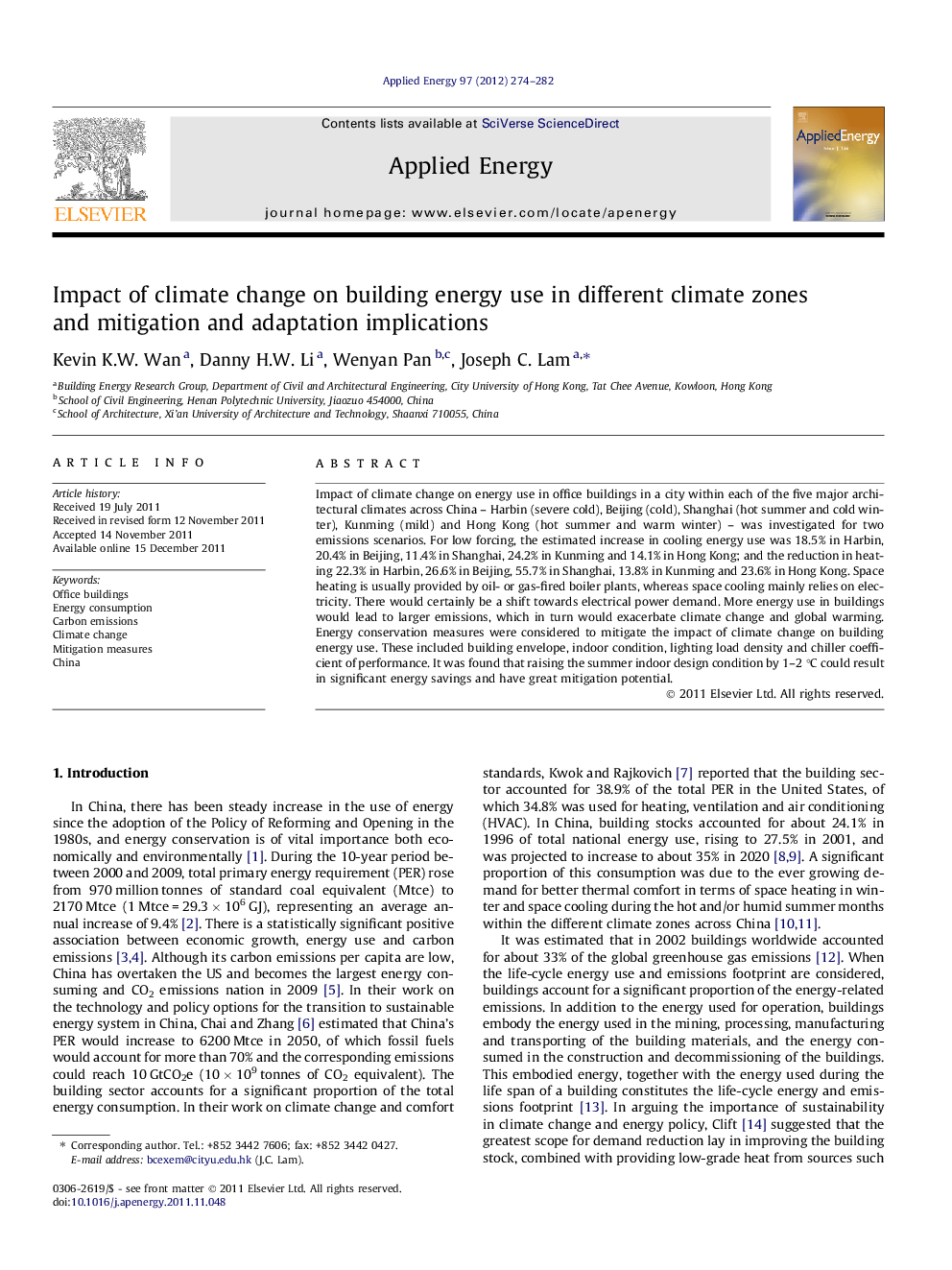| کد مقاله | کد نشریه | سال انتشار | مقاله انگلیسی | نسخه تمام متن |
|---|---|---|---|---|
| 243505 | 501930 | 2012 | 9 صفحه PDF | دانلود رایگان |

Impact of climate change on energy use in office buildings in a city within each of the five major architectural climates across China – Harbin (severe cold), Beijing (cold), Shanghai (hot summer and cold winter), Kunming (mild) and Hong Kong (hot summer and warm winter) – was investigated for two emissions scenarios. For low forcing, the estimated increase in cooling energy use was 18.5% in Harbin, 20.4% in Beijing, 11.4% in Shanghai, 24.2% in Kunming and 14.1% in Hong Kong; and the reduction in heating 22.3% in Harbin, 26.6% in Beijing, 55.7% in Shanghai, 13.8% in Kunming and 23.6% in Hong Kong. Space heating is usually provided by oil- or gas-fired boiler plants, whereas space cooling mainly relies on electricity. There would certainly be a shift towards electrical power demand. More energy use in buildings would lead to larger emissions, which in turn would exacerbate climate change and global warming. Energy conservation measures were considered to mitigate the impact of climate change on building energy use. These included building envelope, indoor condition, lighting load density and chiller coefficient of performance. It was found that raising the summer indoor design condition by 1–2 °C could result in significant energy savings and have great mitigation potential.
► We study climate change impact on office building energy use and CO2 emissions.
► Annual average CO2 emissions would increase in all major climate zones in China.
► Thermal insulation to the external wall would not be effective to mitigate the expected increase.
► Energy-efficient lighting and raising summer set point have good mitigation potential.
► Cleaner fuel mix for electricity generation would result in 38–49% CO2 reduction.
Journal: Applied Energy - Volume 97, September 2012, Pages 274–282